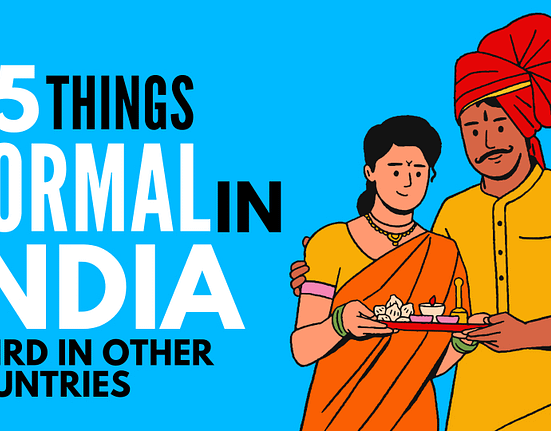When speaking with women, it’s important to be mindful of the questions we ask.
Some questions can come off as intrusive or even offensive, leading to discomfort or hurt feelings.
Understanding what to avoid can help foster respectful and meaningful conversations.
Let’s jump into 25 Questions You Should Never Ask a Woman, and why these questions can be problematic.
I. Personal Appearance and Body
1: Are You Pregnant?

Asking a woman if she’s pregnant can be deeply intrusive and hurtful, especially if she isn’t expecting.
This question can inadvertently suggest that she appears overweight, which can lead to feelings of embarrassment and self-doubt.
In many cultures, such as in the United States and the UK, this question is considered taboo and insensitive.
Women may experience emotional distress, feeling judged or pressured to conform to certain body standards.
Physically, it can induce stress and anxiety, affecting overall well-being. In contrast, in some countries like Japan, personal questions might be more common, but the impact remains similar, leading to discomfort and self-consciousness.
2: How Much Do You Weigh?
Weight is an intensely personal topic for many women, and inquiring about it can make her feel vulnerable and exposed. This question breaches personal boundaries and can cause a woman to become acutely aware of societal pressures regarding body image.
In Western cultures, where media often emphasizes a narrow definition of beauty, such a question can lead to feelings of inadequacy and low self-esteem.
In regions like South Korea, where appearance is highly emphasized, the pressure can be even more intense, impacting mental health by fostering a negative body image and potentially contributing to eating disorders.
3: How Old Are You?
Age is often a sensitive subject for women, as it can be tied to societal expectations about beauty, success, and life milestones. Asking about age may make her feel scrutinized or that she has not achieved enough at her stage in life.
In the United States and many European countries, there is a cultural tendency to equate youth with attractiveness and capability, which can intensify feelings of discomfort.
In Italy or France, where age might be less of a direct concern due to different cultural attitudes towards aging and beauty, the question still holds the potential to reduce a woman’s confidence by highlighting societal pressures.
4: Are You Really Going to Eat That?

Commenting on what a woman chooses to eat can seem judgmental and intrusive. This question implies that her food choice is questionable or unhealthy, leading her to feel self-conscious and guilty about her dietary habits.
In the U.S., where diet culture is prevalent, such comments can exacerbate issues related to body image and eating disorders.
Similarly, in countries like India, where food is a significant part of culture and tradition, questioning someone’s dietary choices can still carry implications of judgment and disrespect, leading to feelings of shame or alienation.
5: Is That What You’re Going to Wear Tonight?
Questioning a woman’s choice of attire suggests disapproval and can undermine her confidence. It implies that her taste is questionable or inappropriate, which can lead to feelings of insecurity and self-doubt.
In cultures like the UK and Australia, personal expression through clothing is valued, making such questions feel particularly invasive.
Conversely, in countries with stricter dress codes or cultural norms around clothing, like Saudi Arabia, while the context differs, the emotional impact remains similar—causing stress and impacting self-esteem by challenging personal style.
6: Are You Tired?
Pointing out that someone looks tired can come across as insensitive and unhelpful. This question may suggest that her appearance is lacking, contributing to feelings of self-consciousness or exhaustion beyond physical tiredness.
In fast-paced environments like New York City or Tokyo, where appearances often reflect one’s energy levels or professionalism, such comments can heighten stress or anxiety about maintaining societal standards.
The implication that she looks less than her best can be detrimental to her mental health by reinforcing negative self-perceptions.
II. Relationships and Personal Life
7: How Many Guys Have You Been With?

Asking a woman about the number of past partners is invasive and can make her feel judged or objectified. This question places undue focus on her past rather than appreciating her for who she is now.
In many Western cultures, such as the United States and Canada, this question is considered inappropriate and disrespectful, as it can lead to feelings of shame or guilt.
Comparatively, in more conservative societies like India, where discussions about relationships can be more private, this question might be even more intrusive, leading to heightened anxiety and discomfort.
It’s crucial to respect her privacy and focus on building a meaningful connection through shared interests and present experiences.
8: Why Are You Still Single?
When someone asks a woman why she’s still single, it may imply there’s something wrong with her or that she must justify her relationship status. This can be hurtful and intrusive, suggesting that being single is a problem to be fixed.
In countries like the UK and Australia, where independence is often valued, this question can still make women feel pressured to conform to societal norms around partnership.
In cultures where marriage is heavily emphasized, like in some parts of China, this question can exacerbate feelings of inadequacy and lead to stress or anxiety about meeting cultural expectations.
Respecting her choice and timing is essential for a supportive interaction.
9: Are You in Love with Me?
Asking if a woman is in love with you can indicate insecurity and place undue pressure on her emotions. It may force her to confront feelings she isn’t ready to discuss or define.
In many cultures, like the United States or France, where relationship dynamics can be complex and personal, this question could create unnecessary tension or misunderstandings.
In places like Japan, where emotional expression might be more reserved, such a direct question could lead to discomfort or strain in the relationship.
Allowing feelings to develop naturally and communicating openly without pressuring labels fosters healthier relationships.
10: Why Did Your Last Relationship End?

Inquiring about why a woman’s last relationship ended can be too personal and may bring back painful memories.
It’s a sensitive topic that she may not want to revisit in casual conversation. In Western societies like Canada or Germany, where personal boundaries are respected, this question might be seen as prying or inconsiderate.
In cultures with a strong emphasis on privacy, such as South Korea, discussing past relationships can be even more intrusive, potentially causing emotional distress or discomfort.
Giving her space to share when she feels ready shows respect for her emotional well-being.
Read Also: 19 Surprising Facts About Why Women Don’t Go Bald
11: Do You Have Any Debt?
Asking a woman if she has debt delves into her private financial matters and can create feelings of judgment or embarrassment.
Money is often a sensitive subject, and such questions can lead to discomfort or anxiety about financial security. In the U.S., where financial independence is prized but debt is common, this question might evoke feelings of vulnerability.
In countries like Italy, where finances are generally considered private matters, such inquiries can come across as particularly intrusive.
Focusing on positive topics rather than financial status helps maintain respect and comfort in conversations.
12: Do You Own Your Own House?
Questioning whether a woman owns her home can feel like an assessment of her financial status and may seem intrusive, especially early in a relationship.
It implies judgment about her success or stability based on material assets. In cultures like Australia or the UK, where home ownership is a significant milestone, this question might pressure women into feeling inadequate if they don’t fit that mold.
In Japan, where property values and living situations differ greatly, such questions might add unnecessary stress. Instead, engaging in conversations about shared interests fosters more meaningful connections.
13: How Much Money Do You Make?

Inquiring about a woman’s income is intrusive and can make her feel objectified or reduced to her financial worth rather than appreciated for who she is.
Discussing earnings breaches personal boundaries and can create an uncomfortable atmosphere.
In countries like Canada or France, where personal privacy is valued, this question could lead to feelings of vulnerability or resentment.
In some cultures, like India, where income disparities are significant, probing into someone’s earnings might exacerbate social tensions or insecurities.
Respecting privacy in financial matters promotes dignity and respect in interactions.
14: Do You Have Any Health Issues?
Asking a woman about her health issues can be deeply personal and make her feel uncomfortable or exposed. Health is a private matter, and such questions may imply scrutiny or unwarranted concern.
In many Western cultures, such as the United States and Canada, personal health topics are considered private and asking about them directly can lead to feelings of vulnerability or embarrassment.
In societies like Japan, where privacy is highly valued, this question might be even more intrusive, contributing to stress or anxiety about sharing personal information.
Allowing her to disclose health-related information at her own pace ensures respect and comfort in the relationship.
15: Do You Have Any Mental Health Conditions?
Inquiring about mental health conditions can be particularly sensitive and might feel intrusive or disrespectful. Such questions may suggest judgment or lack of understanding about the complexities of mental health.
In Western countries like the UK and Australia, where mental health awareness is growing, this question could still lead to discomfort or feelings of exposure if not approached delicately.
In cultures where mental health is less openly discussed, like some regions in Asia, such questions might cause significant distress or reluctance to engage further.
Creating a supportive environment where she feels safe to discuss personal matters at her own comfort level fosters trust and understanding.
III. Behavior and Emotions
16: Are You on Your Period?

Asking a woman if she’s on her period can be perceived as dismissive and offensive, suggesting that her emotions are merely hormonal and not valid.
This question can undermine her feelings and imply that her reactions are unjustified. In Western cultures like the U.S. and Canada, this question is often considered inappropriate, as it reduces a woman’s emotional experience to stereotypes about menstruation.
In more conservative cultures, such as in parts of the Middle East, discussing menstrual cycles openly can be even more taboo, leading to embarrassment or anger.
It’s crucial to focus on understanding her current experience without making assumptions based on hormonal cycles.
17: Can You Calm Down?
Telling a woman to calm down can feel invalidating and dismissive, suggesting that her emotions are overblown or irrational. This phrase often shuts down communication rather than fostering understanding.
In many cultures, such as in the UK or Australia, where emotional expression is valued, this command can increase frustration and hurt.
In societies like Japan, where calmness is culturally prized, it might still be seen as condescending and unhelpful.
Instead of perpetuating frustration, listening actively and offering empathy can lead to more constructive conversations and support her emotional well-being.
18: Why Are You Acting Like Your Mom?
Comparing a woman to her mother, especially with negative connotations, can be hurtful and disrespectful. It suggests that her actions or traits are undesirable or unoriginal.
In cultures like the U.S. and Canada, where individualism is highly valued, such comparisons can lead to feelings of resentment or inadequacy.
In family-oriented societies, like those in Latin America, this comparison might still carry negative implications, affecting her self-esteem.
Embracing the unique aspects of her personality and understanding the positive influences of family traits fosters a more supportive and respectful relationship.
19: Are You PMSing?
Similar to asking if she’s on her period, questioning whether a woman is PMSing can invalidate her feelings and come off as condescending. This question reduces her emotions to hormonal stereotypes and dismisses their legitimacy.
In Western countries like the UK and Australia, where awareness around mental health is increasing, such remarks are viewed as trivializing genuine emotional experiences.
In many Asian cultures, where discussions about menstruation are less common, it might be even more offensive or embarrassing.
Addressing the actual issue at hand rather than relying on stereotypes about women’s emotions ensures a more respectful interaction.
Read Also: 20 Secrets Women Don’t Want Men to Know
20: Why Do You Like Wearing a Specific Piece of Clothing?

Questioning a woman’s clothing choices can make her feel judged or criticized for her style preferences. This question implies that her taste is questionable or wrong.
In fashion-conscious cultures like France or Italy, where personal style is a significant form of expression, such inquiries might lead to feelings of insecurity or defensiveness.
In more conservative societies, like some regions in the Middle East, questioning attire could also imply judgment about cultural values.
Instead of criticizing or questioning her wardrobe choices, focusing on genuine compliments fosters confidence and shows appreciation for her individual style.
IV. Social and Professional Life
21: Why Aren’t You Close to Your Family?
Asking a woman why she isn’t close to her family can be intrusive, as family dynamics are often complex and deeply personal. This question might bring up painful memories or uncomfortable feelings that she may prefer not to share, leading to emotional distress.
In cultures like the U.S. and Canada, where individualism is emphasized, family relationships can vary widely, and such questions are considered personal and potentially invasive.
In more family-oriented societies, such as in Latin America, discussing family issues might be even more sensitive, leading to discomfort or embarrassment.
Respecting her boundaries in this area fosters trust and understanding in relationships.
22: Why Didn’t You Go to College?

Questioning a woman about not attending college can come across as judgmental regarding her educational choices or circumstances. This inquiry may imply that success is solely defined by formal education, which can be discouraging.
In Western countries like the U.S. and the UK, where diverse career paths are increasingly valued, this question might still suggest inadequacy or failure.
In places where higher education is less accessible, such as parts of Africa or Asia, the question could highlight socio-economic disparities, causing discomfort.
Celebrating her achievements and exploring shared interests that don’t revolve around formal education promotes respect and appreciation for her unique journey.
23: Why Haven’t You Been Promoted at Work?
Asking a woman why she hasn’t been promoted can imply that she’s not successful or working hard enough, which can be discouraging and judgmental.
This question suggests inadequacy and overlooks the complexities of workplace dynamics. In competitive environments like those in the U.S. or Japan, where career advancement is highly emphasized, such questions might intensify pressure and stress.
Similarly, in countries with gender disparities in the workplace, like India, it might highlight systemic barriers rather than personal shortcomings.
Supporting her career aspirations positively encourages growth and acknowledges her efforts without criticism.
24: Are Things Easier for You Because You’re a Good-Looking Woman?
This question undermines a woman’s professional achievements by suggesting that her success is primarily due to her appearance rather than her skills or hard work. It can diminish her self-worth and accomplishments.
In Western cultures like the U.S. and Australia, where meritocracy is idealized, this question can be particularly offensive, reinforcing stereotypes about women in the workplace.
In societies where appearance may play a significant role in professional dynamics, such as in South Korea, it might still undervalue her capabilities and efforts.
Acknowledging her hard work and talent over superficial qualities fosters genuine appreciation for her skills and contributions.
25: Do You Always Have to Argue?

Questioning whether a woman always has to argue can dismiss her opinions and feelings, making it harder for her to express herself openly.
This framing suggests that her input is contentious rather than valuable, which can stifle communication.
In cultures like the UK or Germany, where directness is often valued, this question might still invalidate her contributions. In more reserved cultures, such as Japan, it could discourage her from sharing thoughts altogether.
Engaging in constructive conversation by listening actively and trying to understand her perspective promotes healthy dialogue and mutual respect.
Conclusion
By steering clear of these 25 Questions You Should Never Ask a Woman, we can promote respectful interactions with women and foster deeper connections based on understanding and empathy. Communication thrives on mutual respect, so being mindful of the questions we ask is essential for maintaining positive relationships.
Remember, the goal is to listen actively and engage meaningfully without crossing boundaries or making anyone feel uncomfortable.
Taking time to reflect on our conversations not only enhances our interactions but also contributes to healthier relationships overall. Empathy and understanding should always guide our approach to communication, allowing everyone to feel valued and respected in their conversations.
Thanks for reading!









